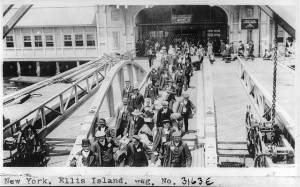A Freethinker is someone who forms his or her own opinions on the basis of reason, in particular, his or her ideas about religion; independent of tradition, church authority or established beliefs.
Free thought ideology gained acceptance and blossomed during the Enlightenment of the 18th century in Europe, a period when philosophies of social progress, reason, empirical science, individual liberty and religious tolerance predominated the ideas of the day. It was a time when the authority of absolute monarchies and religious orthodoxy were being challenged. People were beginning to demand an end to the political power wielded by the Roman Catholic Church and the abuse of said power. They had grown weary of centuries of intolerance resulting in religious wars.

Thomas Paine
In the American colonies of that same period, founding fathers such as Thomas Jefferson, Benjamin Franklin and Thomas Paine, enthusiastically embraced Enlightenment ideals and helped to advance them on both sides of the Atlantic. Ideals of individual liberty and democratic government helped spur the American Revolution and were incorporated into the Declaration of Independence and the American Constitution
Thomas Paine, more than any other American Revolutionary of his day, was responsible for persuading and rallying the colonists to the cause for independence. He did so by laying out a compelling argument for independence in his pamphlet, Common Sense, first published in 1776. It was written in easy to understand language by the average reader and it quickly became a best-seller. Paine was of working class pedigree not privilege, in tune with the common man, a true champion of Democracy. He advocated rights for all citizens regardless of status, including women and minorities, as evidenced in his collective writings.

Signers of the Declaration of Independence
Revolutionary democratic values of individual liberty allowed for an unprecedented freedom of expression which made it easier for people to voice religious views outside of traditional organized religion. Paine was a leader in this arena too. In 1793 he published The Age of Reason in which he promoted reason and Free Thought and advocated the theological position of Deism. Deists were not atheists. They believed in a Creator God, but they followed their own creed based on personal reason. Jefferson, Franklin, and Paine were themselves Deists. In other words, they were considered Freethinkers.

Drawing from French Revolution
While the newly formed United States was learning how to grow as a democracy, back in Europe, the widespread growth and popularity of Enlightenment ideals had been having its own revolutionary effects. Beginning with the French Revolution in 1789, the desire for self-governance and an upsurge of Nationalism fueled revolts across Europe culminating in the 1848 “Springtime of the Peoples.” In that famous year, political and social upheavals erupted in more than 50 countries around the world.
European intellectuals and activists who participated in or supported those revolutions, without success, sought to find their freedom in America. And so 1848 marked the beginning of a mass  emigration out of Europe. Many were anxious to shed the yoke of the institutional church and embrace Free Thought, Deism, Agnosticism or even Atheism. These Freethinkers found America a safe place to practice their religious liberalism and they contributed to the growth of the Free Thought movement already in existence within the United States.
emigration out of Europe. Many were anxious to shed the yoke of the institutional church and embrace Free Thought, Deism, Agnosticism or even Atheism. These Freethinkers found America a safe place to practice their religious liberalism and they contributed to the growth of the Free Thought movement already in existence within the United States.

Immigrants arriving at Ellis Island
One group of immigrants who came to the U.S. abandoned organized religion in greater numbers and faster than any other ethnic group upon setting foot on American soil. They were the Bohemian Czechs, who settled predominantly in the midwest. Their aversion to religion is not surprising considering their history. For 300 years they had been part of the Austro-Hungarian Empire and under the thumb of the Catholic Hapsburgs. Forced conversion to the State religion, oppression by the Church, and suppression of their language and culture had all taken their toll.
According to the Encyclopedia of Chicago, by the turn of the 20th century, “Chicago was the third largest Czech city in the world, after Prague and Vienna.” It was here that a large Freethinkers movement flourished functioning as a kind of religion of irreligion. In 1870, the Congregation of Bohemian Freethinkers was formed by Czechs in that city as a secular alternative to church. Although most members were Agnostics, Atheists were welcomed as were many non-Czechs. The Freethinkers built an extensive social network of schools, benevolent societies, and fraternal groups that provided a sense of community, belonging, and support.

Turn of the Century Chicago
Once the domain of primarily upper class intellectuals, the Free Thought Movement attracted more and more working class people as time went by. It reached its peak somewhere around the turn of the century but advocates of Freethought are alive and well today.
This brief essay in no way pretends to convey the full history of the Free Thought movement in the United States and elsewhere. Nor does it delve very deeply into the Movement’s ideology. For more information, may I suggest:
Freethinkers: A History of American Secularis
Thomas Paine and the Promise of America
